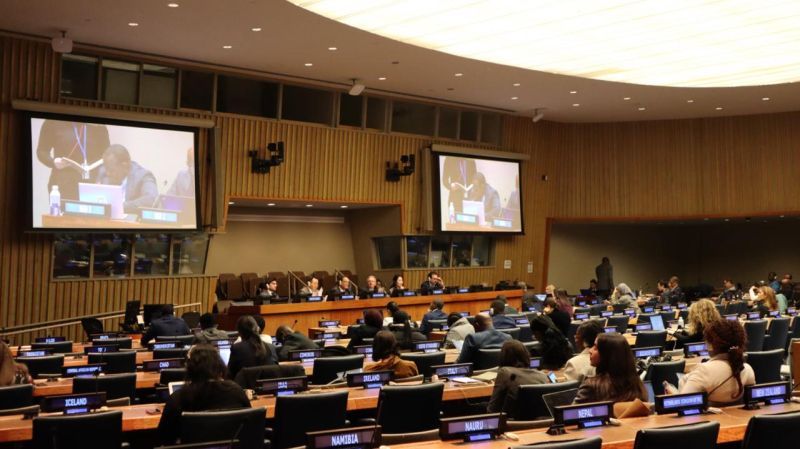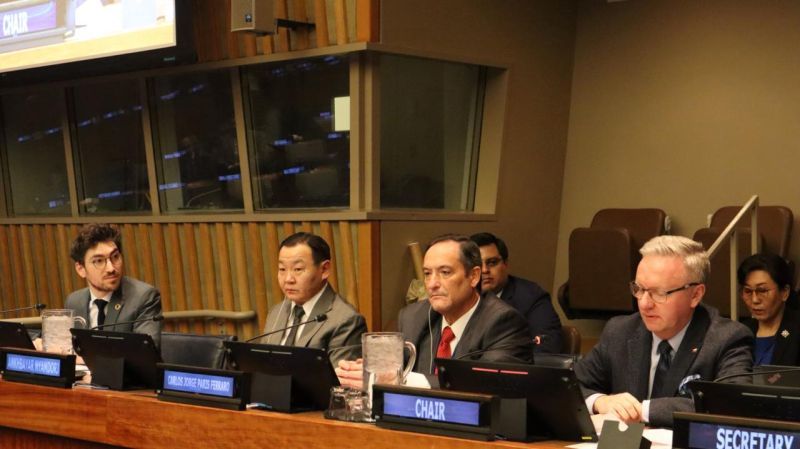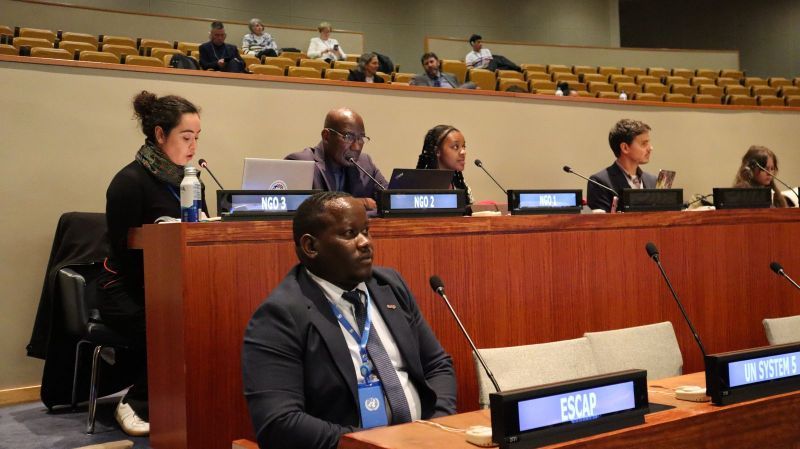
The 63rd session of the Commission for Social Development (CSocD63) on 13 February focused on promoting solidarity and social cohesion through cooperatives and the social and solidarity economy (SSE). Organised by the United Nations Department of Economic and Social Affairs (UNDESA) in collaboration with the Committee for the Promotion and Advancement of Cooperatives (COPAC), the event examined the role of cooperatives in accelerating the implementation of the 2030 Agenda for Sustainable Development and some of the obstacles faced. The International Cooperative Alliance collaborated closely with the organisers, highlighting the role of cooperatives as agents of social justice and sharing the movement’s plans to scale up its impact, particularly this year, through national committees for implementing the International Year of Cooperatives.

Government representatives from Mongolia, France, Uruguay, Chile, Burkina Faso and Burundi shared the country's experiences in developing the SSE and observing the International Year of Cooperatives. The Vice Minister of Social Policies of the Ministry of Social Development of Paraguay, Carlos Jorge Paris Ferraro, highlighted that the cooperative sector accounts for 12% of the country’s GDP. Mr Ferraro mentioned some of his government’s actions to support the sector, such as creating a department for the social and solidarity economy, adopting a strategy for the SSE, and working with the National University of Asunción to incorporate the social and solidarity economy in curricula.
The Permanent Representative of Mongolia to the United Nations, Ankhbayar Nyamdorj, also offered an overview of his country’s cooperative policies. In April 2024, the government launched a new cooperative programme to support the Mongolian agricultural sector. As part of this, investment loans totalling USD200m have been granted to over 20,400 herders from 4,853 cooperatives. The government also transferred USD9.3m to commercial banks to subsidise interests and is working to help cooperatives access insurance and adopt food safety, animal health and farming standards.
Capacity building is another area of work with 1,500 cooperative members involved in capacity building training provided by the government with the support of the national university. The Mongolian government thinks there are other issues to address, such as developing cooperatives based on regional development clusters, enhancing capacity building including by targeting youth, and supporting research initiatives.
The session also heard from Maxime Baduel, the Ministerial Delegate in charge of the Social and Solidarity Economy (SSE) for France, a country where the sector accounts for 10% of the GDP and 14% of private employment. Mr Baduel argued the SSE is an innovative sector and highlighted the state’s role in encouraging and supporting stakeholders at the grassroots level, enabling them to innovate, organise and develop.
He explained that worker cooperatives in France tend to be more resilient than other types of businesses, while multi-stakeholder cooperatives (société coopérative d'intérêt collective) are better able to identify local needs by bringing together local authorities, businesses, users and employers.
“Developing our SSE is a strong lever to meet the SDGs and it should be encouraged by this committee,” he said. “This development needs to involve a legislative regulatory framework to give a structure to this ecosystem and to ensure that there are financial and capacity-building instruments in place. It also involves promoting these structures with financial institutions, and the economic world [..] building public policies, and ensuring that they are in line with SSEs”.

The International Cooperative Alliance also addressed the meeting with its Head of Policy, Joseph Njuguna, highlighting the role of cooperatives as “agents of social justice, empowering communities, reducing inequalities and driving grassroots changes.” The ICA is mobilising cooperative leaders to present a global cooperative charter and a commitment plan during the upcoming Second World Summit on Social Development, outlining how cooperatives can partner with governments, the UN agencies, and other key stakeholders to drive solutions and accelerate progress towards the SDGs.
“We, therefore, look forward to strengthening our partnership with the UN system, governments and other key stakeholders to scale up impact, particularly this year, through national committees for implementing International Year of Cooperatives,” said Mr Njuguna.
His comments were echoed by the ICA’s Youth Representative, Ana Aguirre, who said that cooperatives were not just resilient, democratic, community-driven and participatory, but also wealth generators.
Cooperatives also “naturally bridge the gap among generations in their everyday work”, she added.
She also made the case for cooperatives to invest in youth and urged member states to draft and implement the strategies that allow the foster the creation of more cooperative-friendly ecosystems. NGOs Inclusivity Project and Children and Youth International also talked about the role of cooperatives in strengthening communities and urged the Commission to consider the cooperative enterprise model ahead of the UN Youth Summit.
The session continued with questions and interventions by UN delegates from Chile, Burkina Faso, Burundi and the European Union.
In their final comments, the speakers reiterated the importance of recognising the SSE and creating databases and statistics, involving young people, providing access to finance, identifying adequate fiscal standards for the sector, and involving civil society in making public policies.
The session’s recording is available here.
Photo credit: UNDESA




